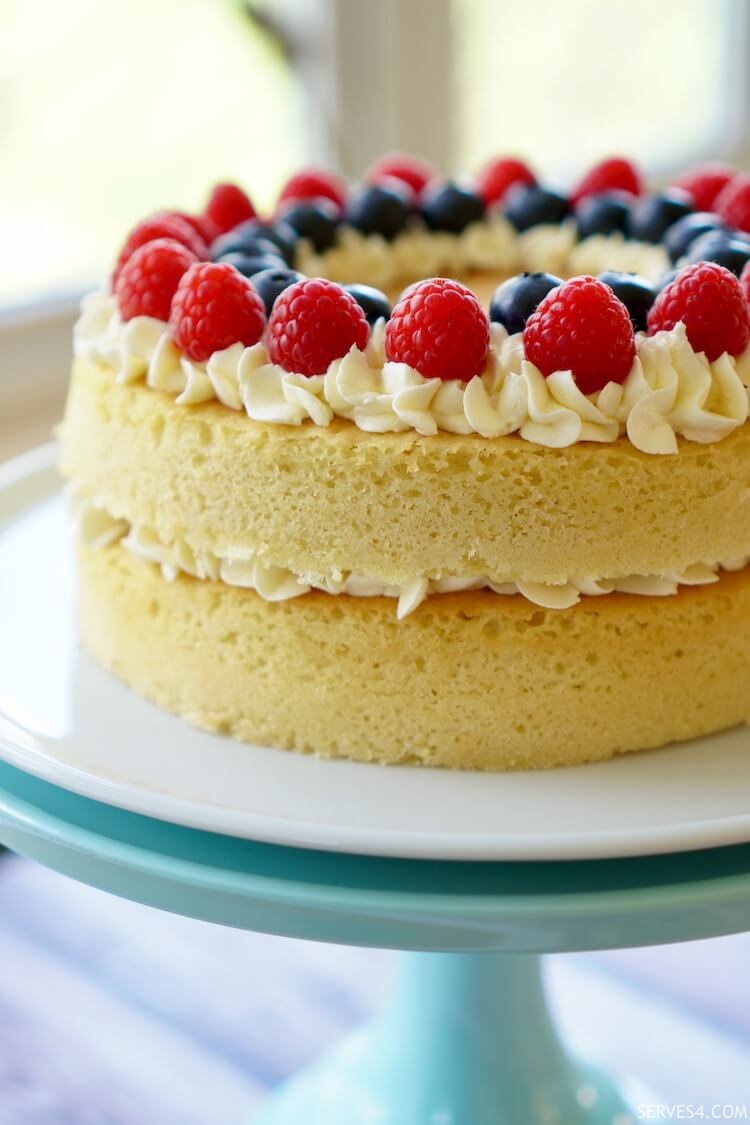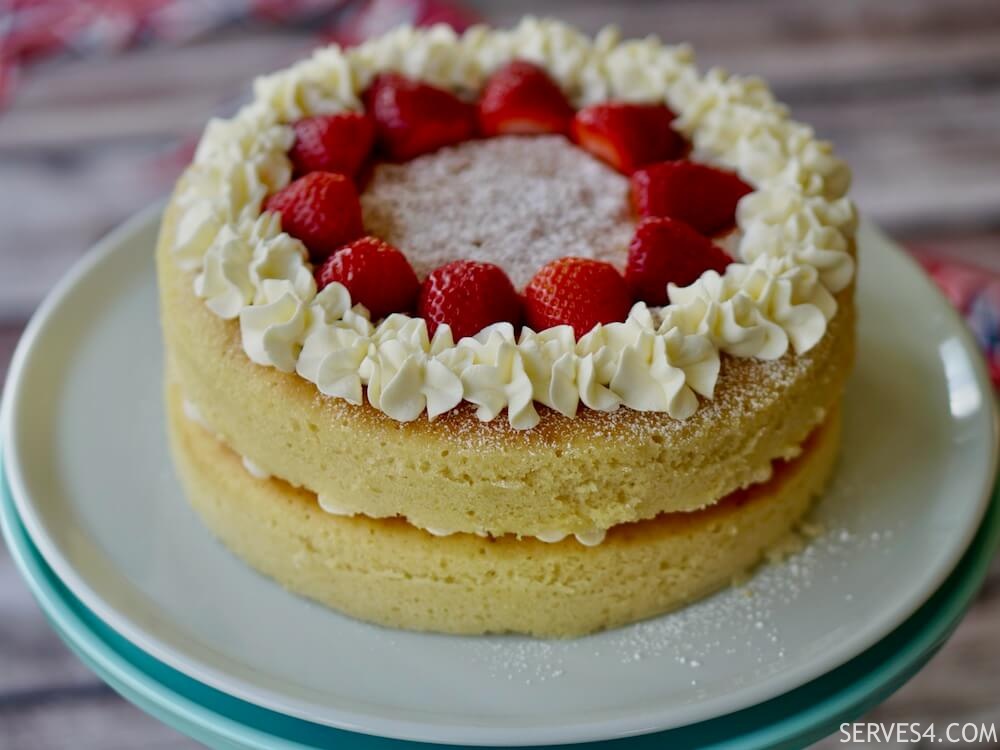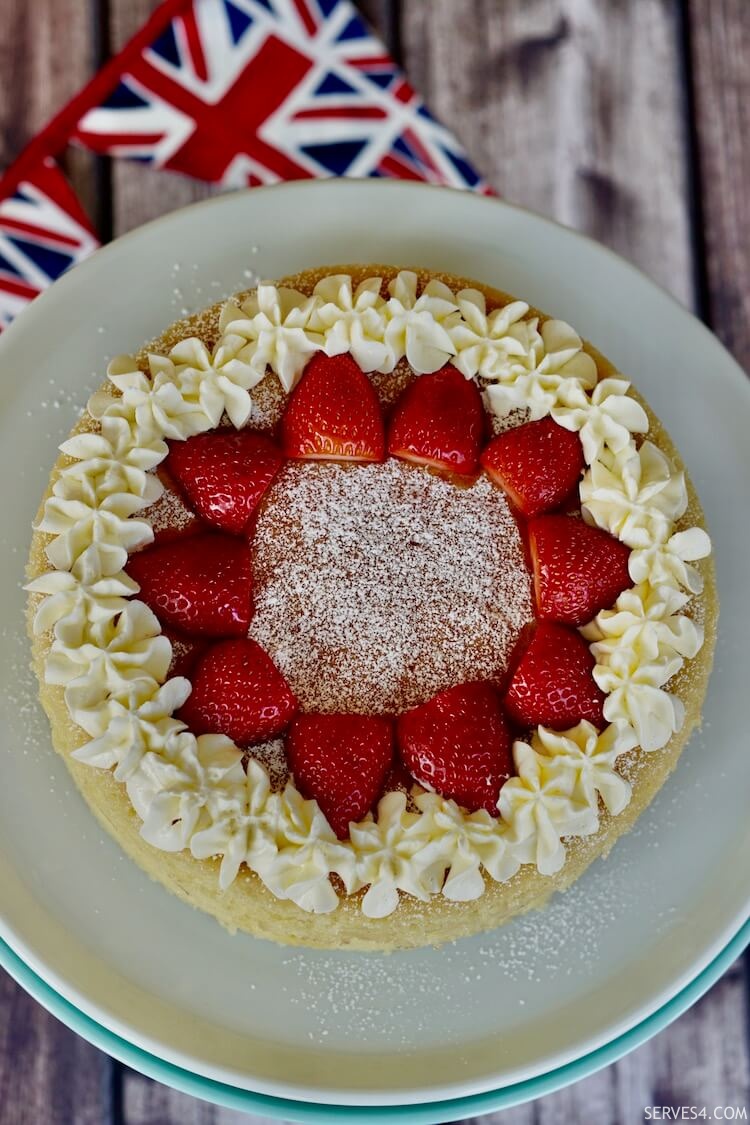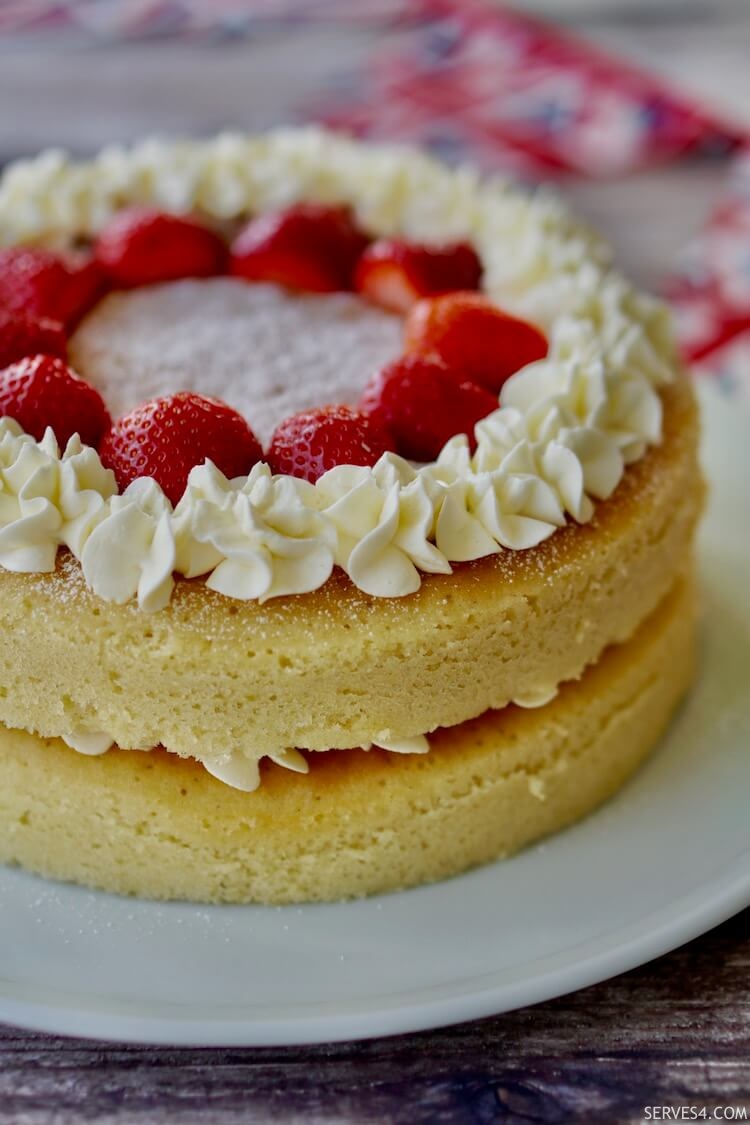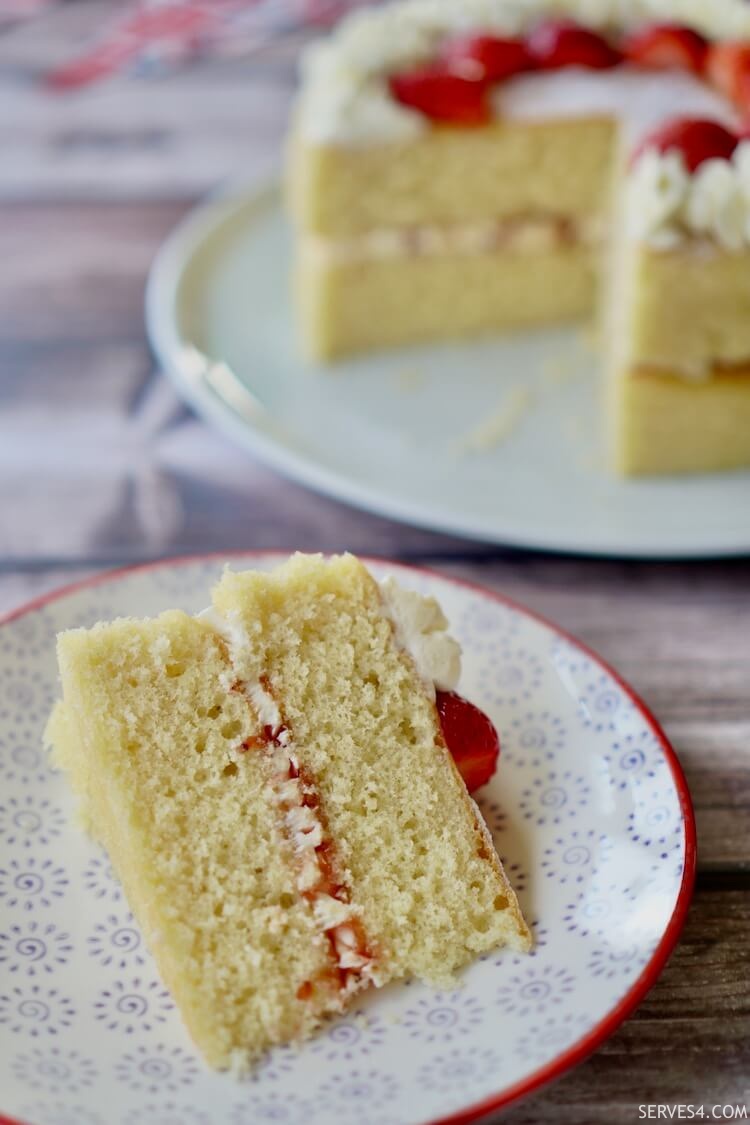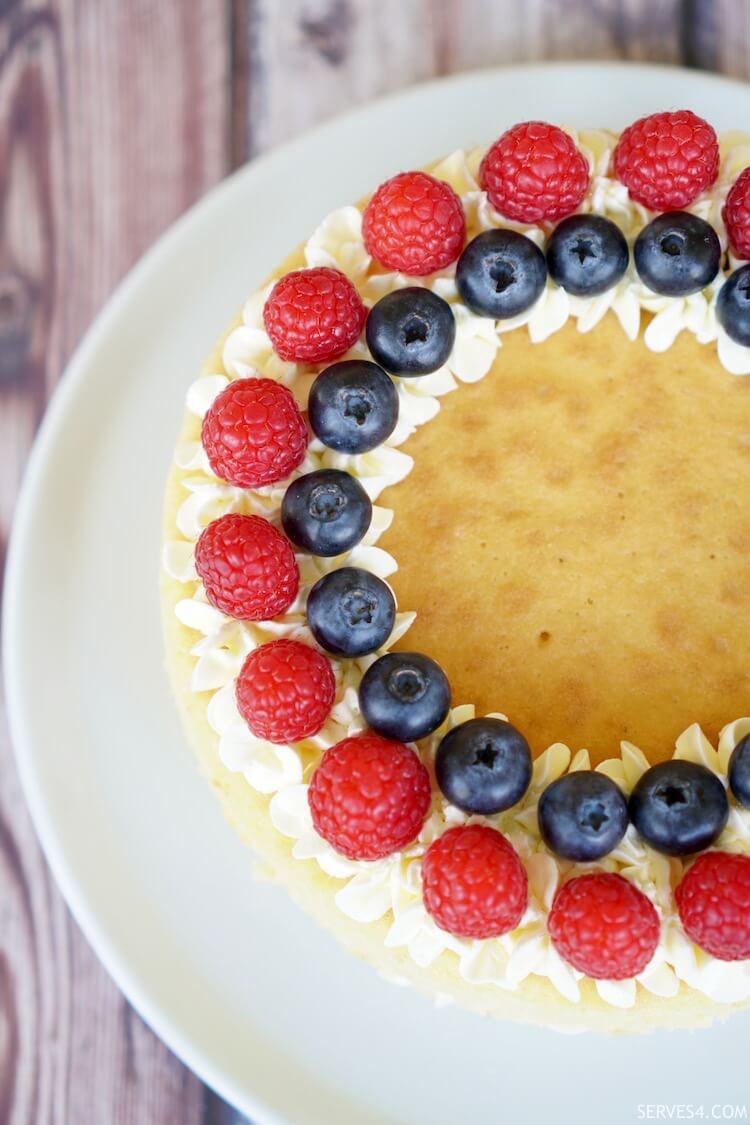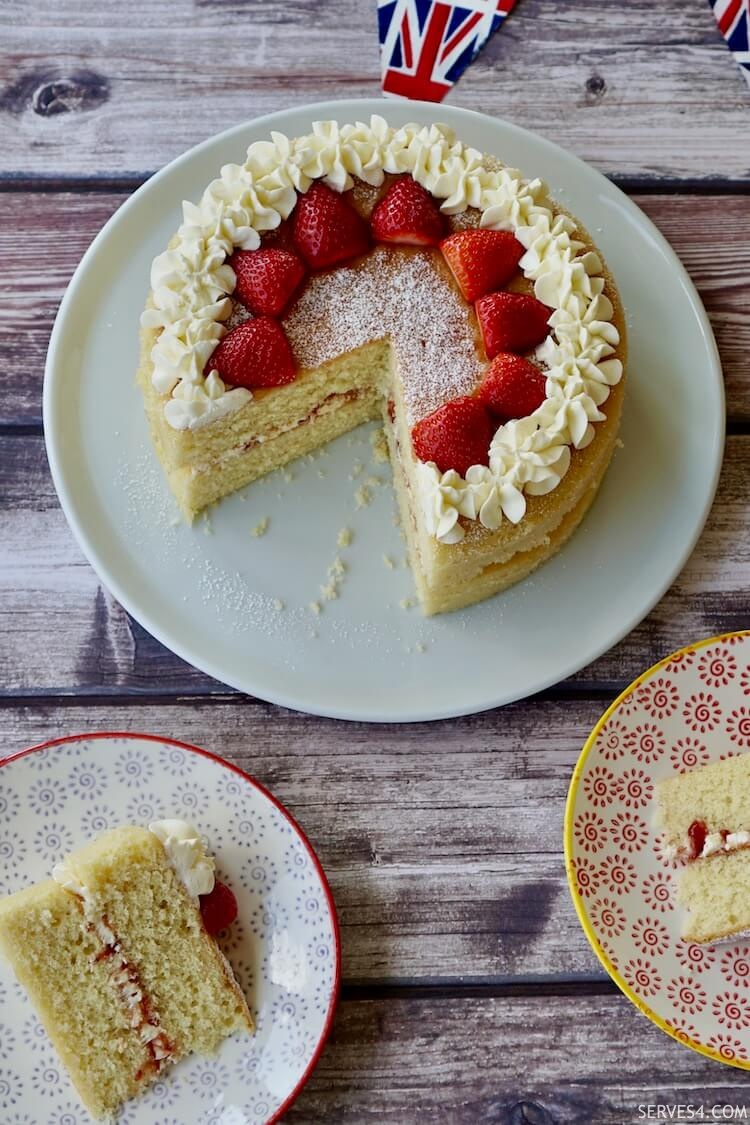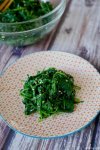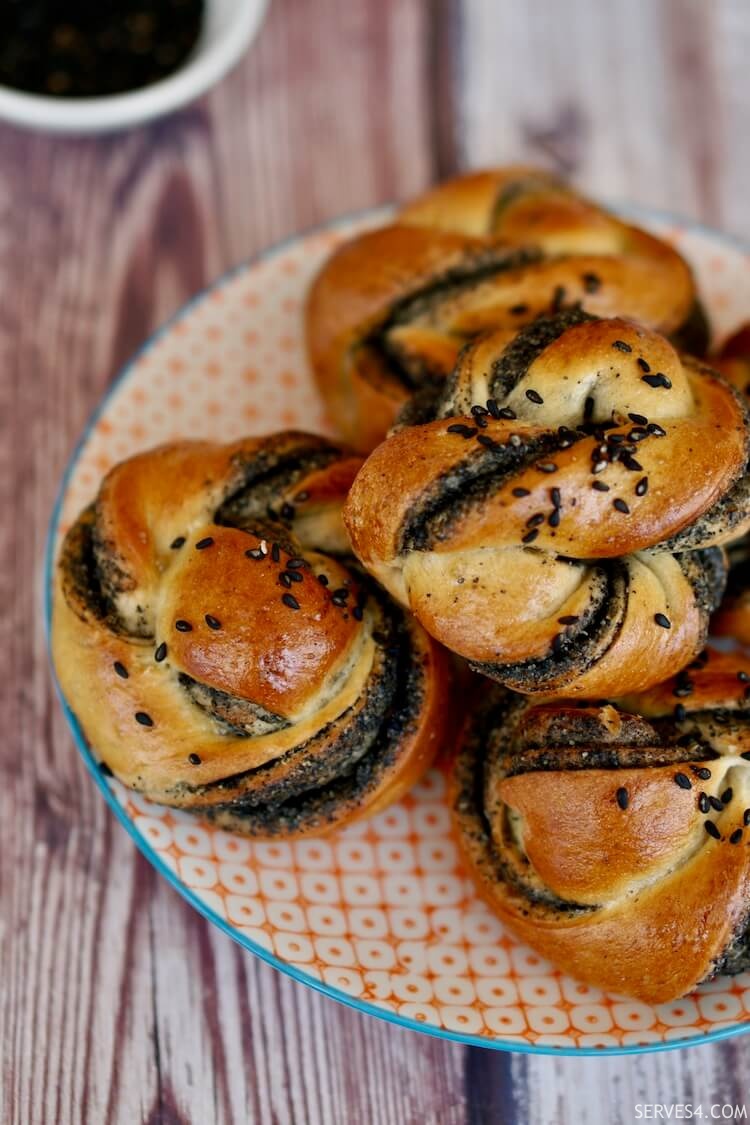- Serves 4
- Baking and Desserts
- Victoria Sponge Cake
Victoria Sponge Cake Recipe
This page may contain affiliate links, which means we receive a small commission for purchases made using the links. There is no additional cost to you. Please read our full disclosure policy.
This Victoria sponge cake recipe is quintessentially British and a frequent fixture at gatherings from parties and celebrations to afternoon tea. It is the perfect warm weather treat, with its soft sponge, fluffy buttercream and seasonal berries.
The namesake of this cake is, as you may have guessed, Queen Victoria, and she was known to have favoured this cake with her afternoon tea. The traditional Victoria sponge cake recipe evolved from that for pound cake, which included equal proportions of flour, fat, sugar and eggs; however, the invention of baking powder used in the Victoria sponge meant that the cake could rise more, resulting in a lighter and more airy texture.
Also called a Victoria sandwich, the traditional Victoria sponge cake recipe sandwiched whipped cream and raspberry jam between two layers of cake, with a light dusting of caster sugar on top. Modern versions of the cake include minor tweaks to the original recipe, including using strawberry jam, fresh fruit, vanilla flavouring, icing sugar and buttercream icing, but the spirit of the original cake is never lost!
For best results, make sure all your ingredients are at room temperature before beginning. Crucially, ensure you are using fresh baking powder that in date - old or inactive baking powder is a frequent cause of cakes failing to rise.
Once the cakes have been baked, they will keep in an airtight container for up to four days. Always assemble your cake just before serving, particularly if using fresh fruit and/or whipped cream. Buttercream icing on the cake will keep for a few days, but if you are using fresh whipped cream, I recommend consuming the cake on the same day.
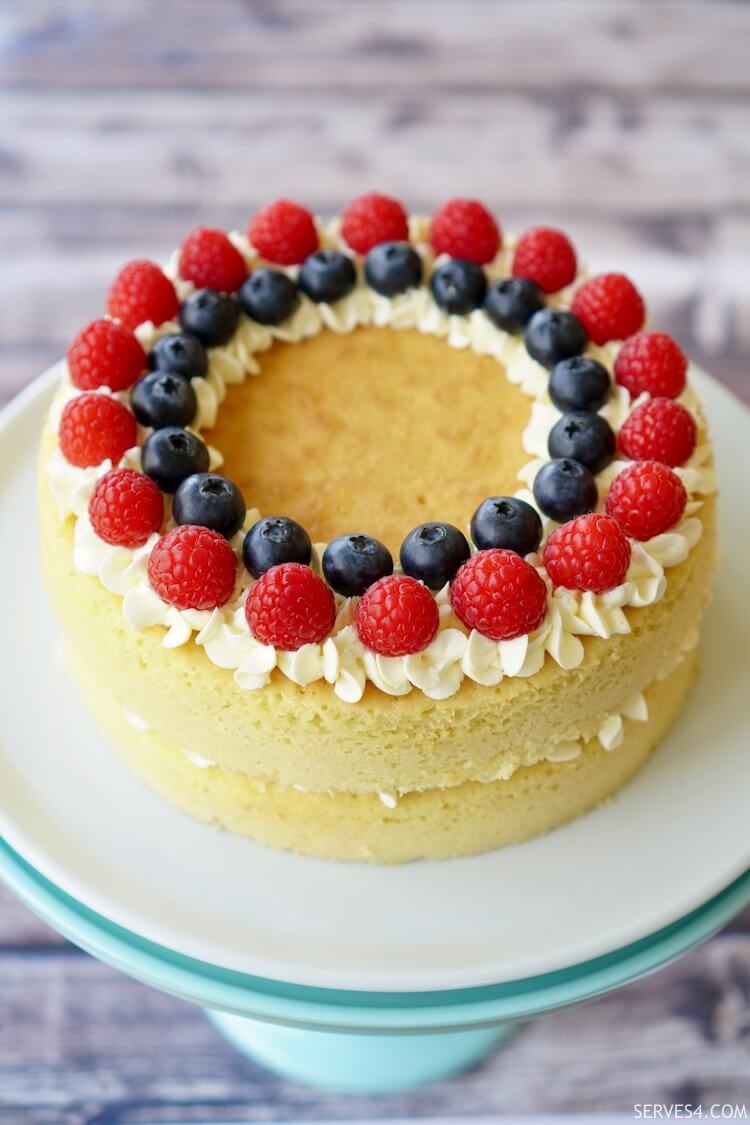
If you love this Victoria sponge cake recipe, try these other strawberry recipes 🍓:
- Strawberries and Cream
- Eton Mess
- Mini Pavlova
- Strawberry and Blueberry Smoothie
- Pineapple Passionfruit Smoothie with Strawberry
- Pineapple Ice Pops with Strawberry
- Strawberry Ice Pops
- Mango and Strawberry Ice Pops
- Strawberry Italian Meringue Buttercream
Here's what you'll need to make this Victoria sponge cake recipe:
(Click here to jump straight to the recipe)
225g unsalted butter, room temperature
225g plain flour
4 large eggs, room temperature
200g caster sugar
2 Tbsp milk, room temperature
2 1/2 tsp baking powder
1 tsp vanilla extract
pinch of salt
For the vanilla buttercream icing (I use my trusted Italian Meringue Buttercream recipe), you will need:
250g unsalted butter, softened
3 egg whites from large eggs
150g caster sugar
30ml water
pinch of salt
splash of vanilla extract
You'll also need some jam, icing sugar and fresh berries (optional) to decorate.
And here's what you'll need to do:
To make the cake:
- Bring any cold ingredients to room temperature. Cutting the butter into small chunks will help it to warm faster.
- Prepare two 20cm (8-in) cake tins by lightly buttering them and lining the bases with a sheet of parchment.
- Put the flour, baking powder and salt to a separate bowl, stirring with a spoon to roughly combine.
- Preheat the oven to 180C (355F) / 160C Fan.
- When all the ingredients are at room temperature, cream together the butter and sugar, beating well until it's fluffy and paler in colour. Add the vanilla extract, and beat until mixed in.
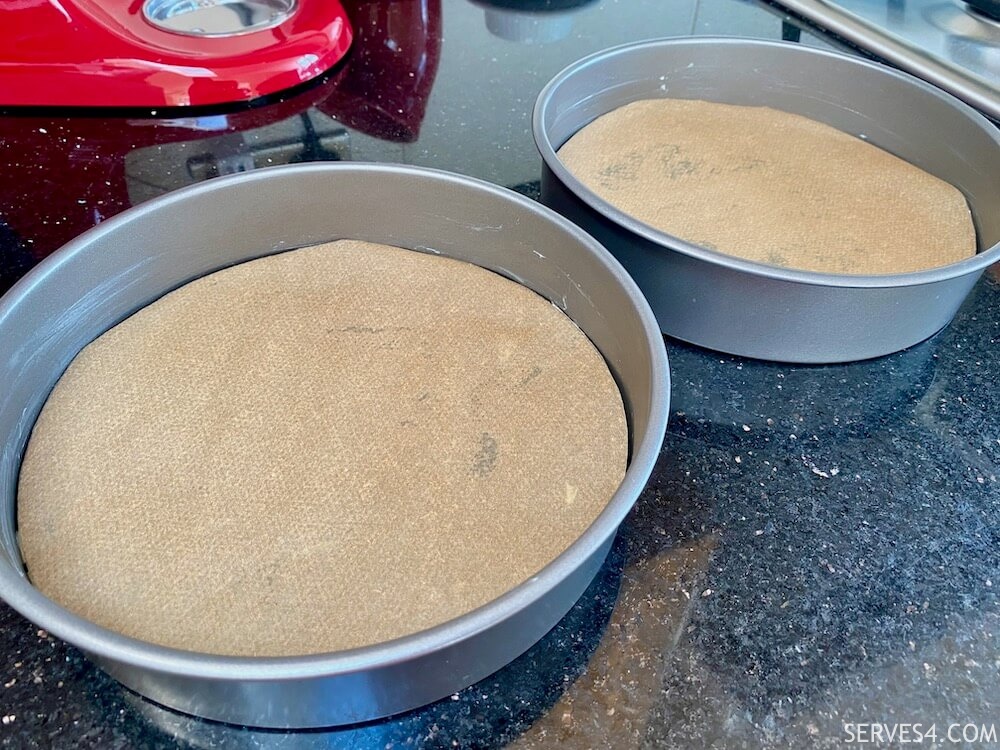
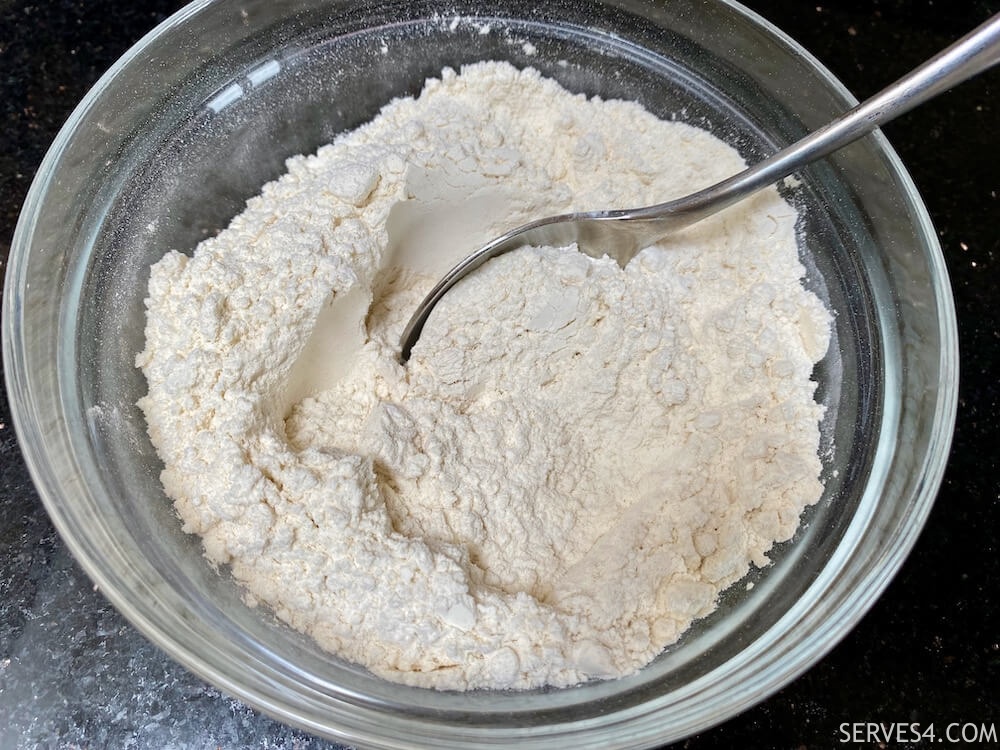
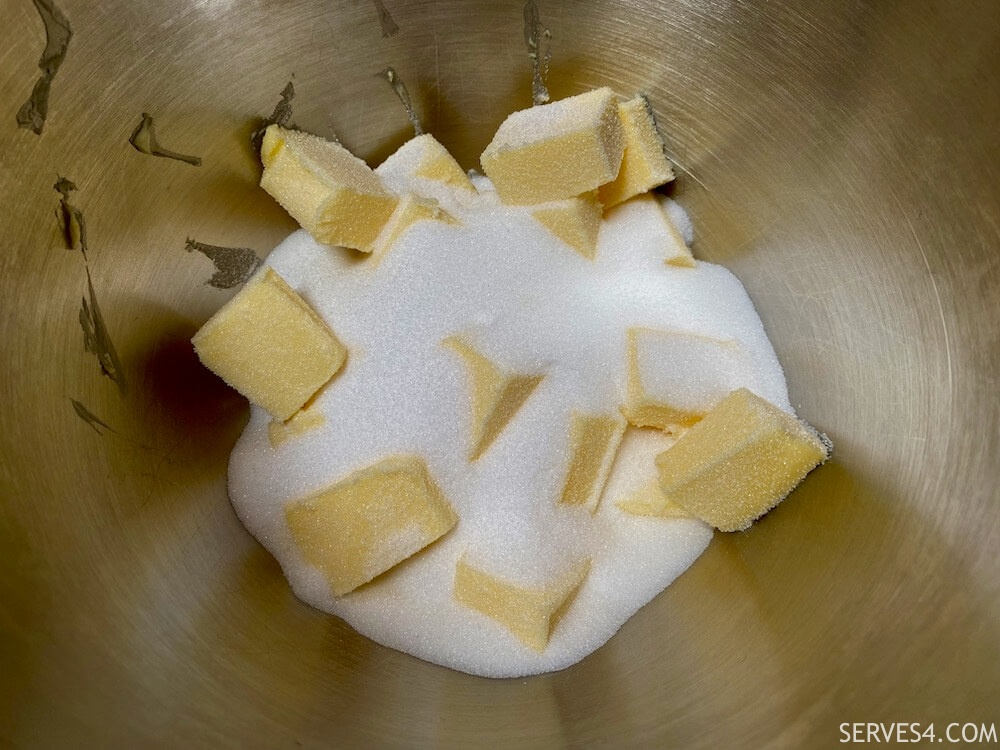
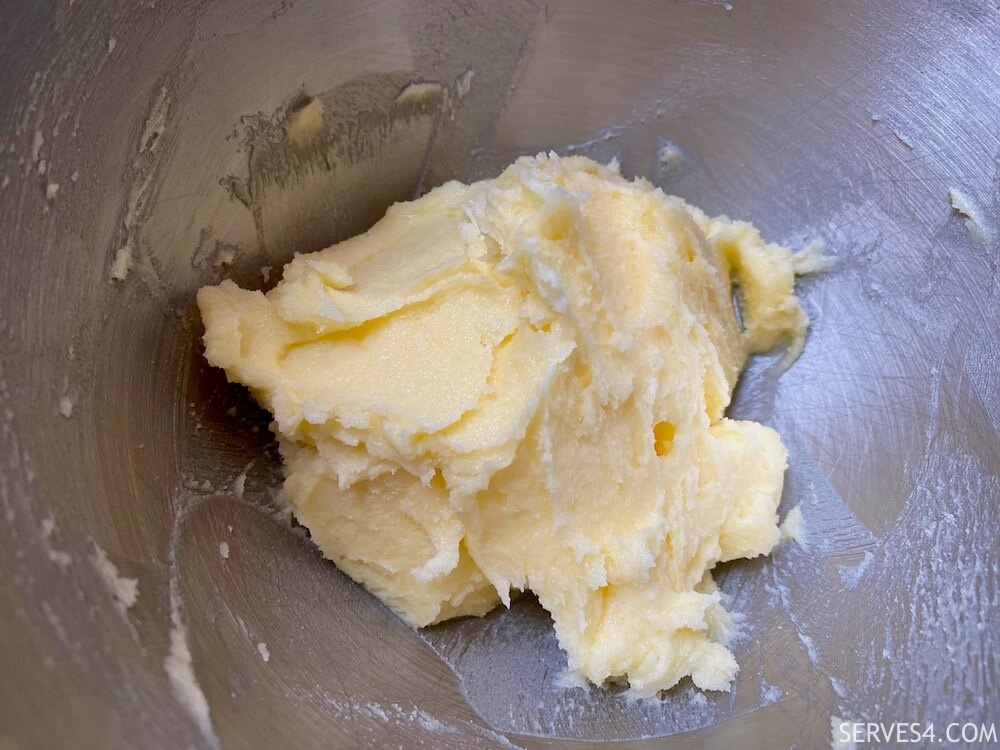
- Then add one egg, beat until fully incorporated, followed by a quarter of the flour mixture, sifted, and beat again until fully incorporated.
- Repeat until all the eggs and flour mixture have been mixed into the batter, scraping down the mixing bowl in between, as necessary.
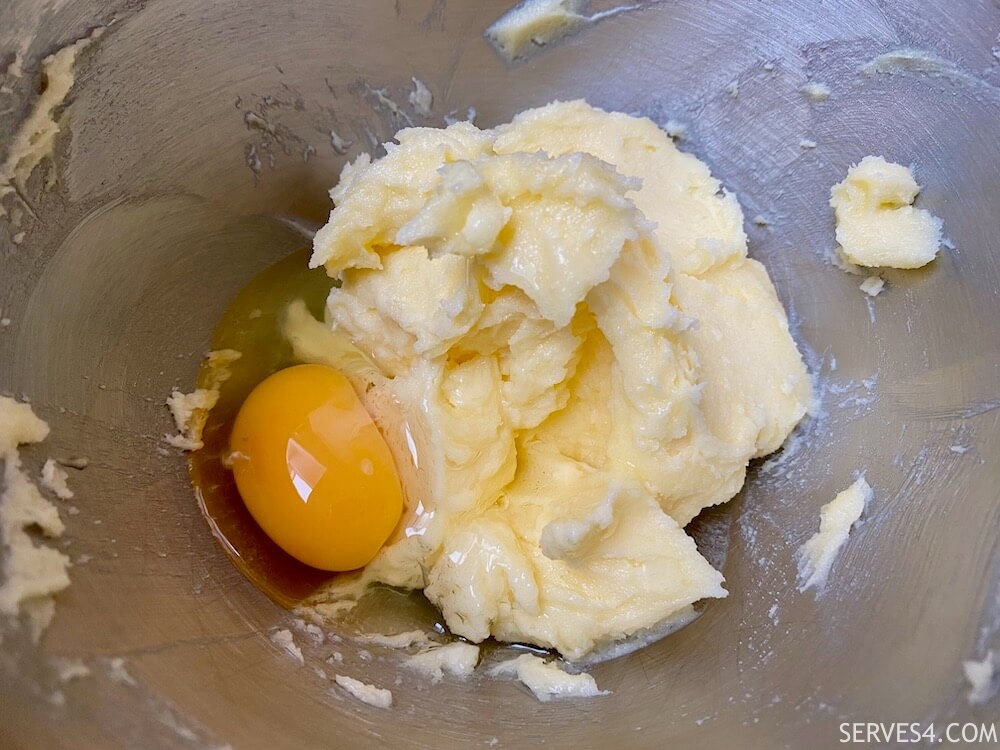
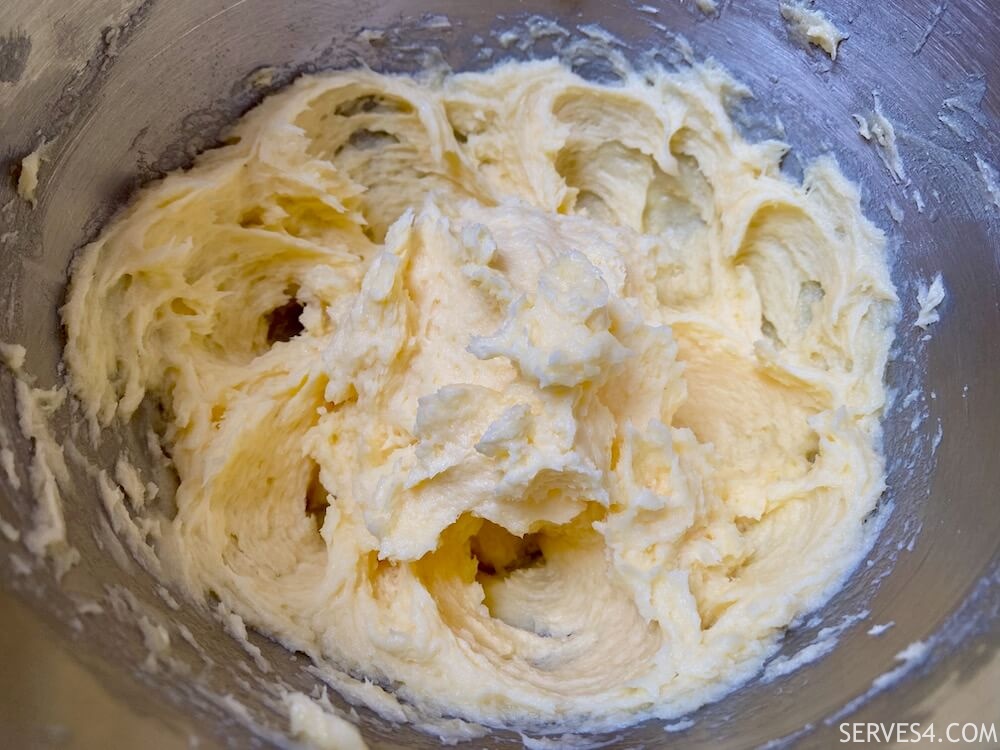
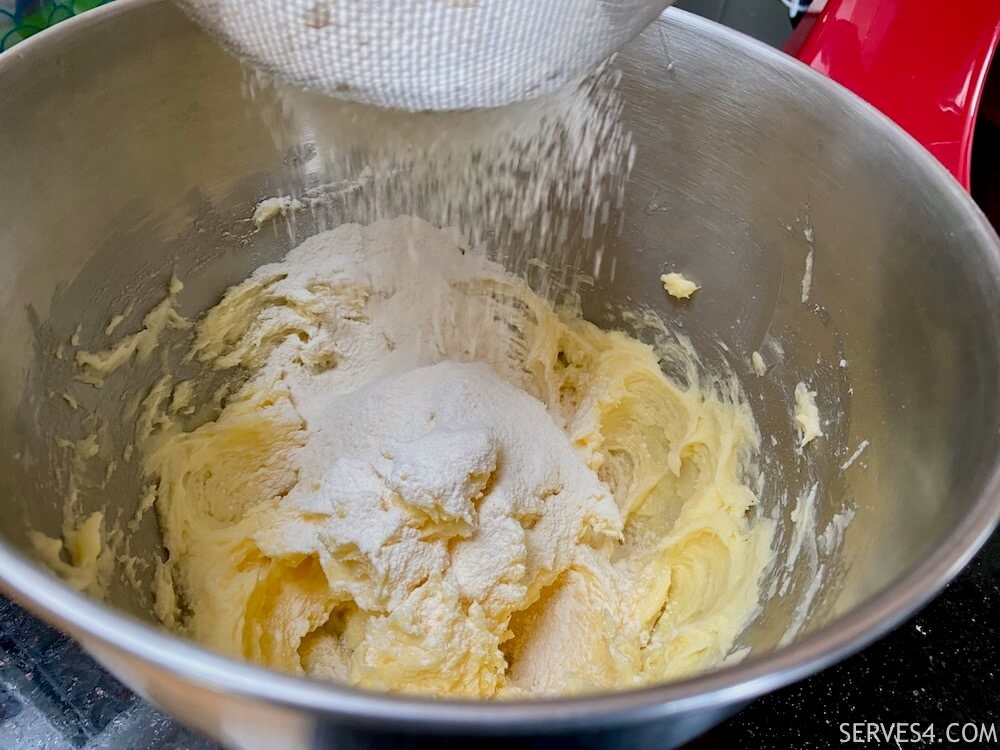
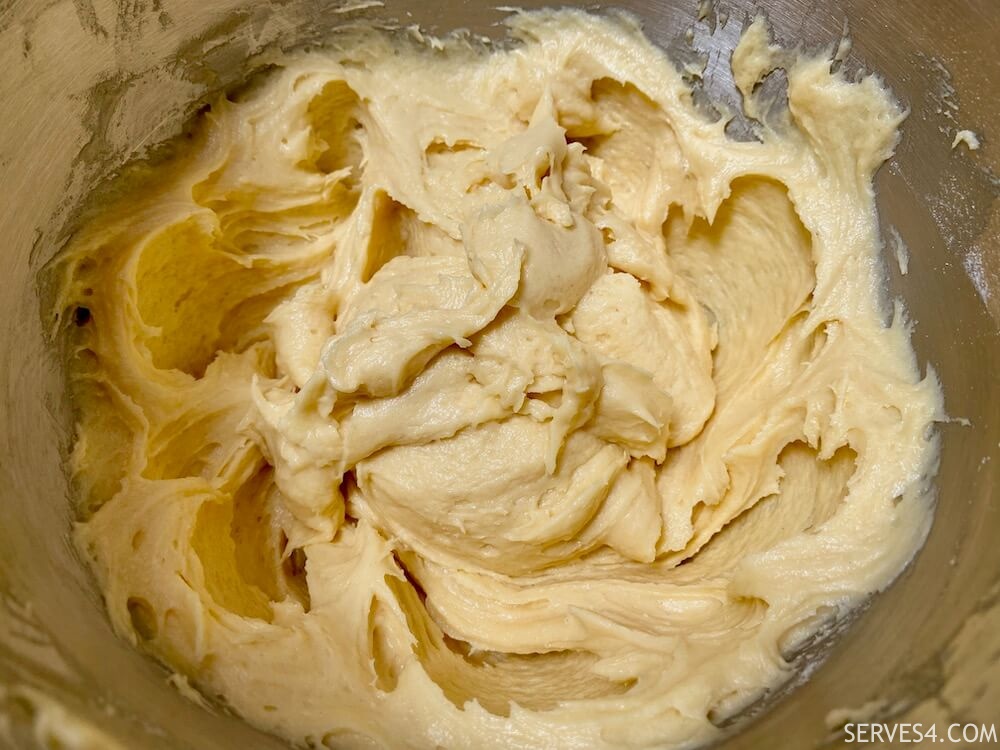
- Beat in one tablespoon of milk until fully incorporated, and repeat with the second tablespoon. The batter should be loose and drop easily off the beaters without being too runny.
- If your batter is still too thick, you can add another half tablespoon of milk, but you shouldn't really need more than that.
- Divide the batter evenly between the two cake tins, and bake immediately in the preheated oven for 25 minutes, until a skewer through the centre of each layer comes out clean.
- Remove the cakes from the oven and leave them for a few minutes until cool enough to handle. Then remove them from their tins onto a wire rack to cool completely, and peel off the parchment.
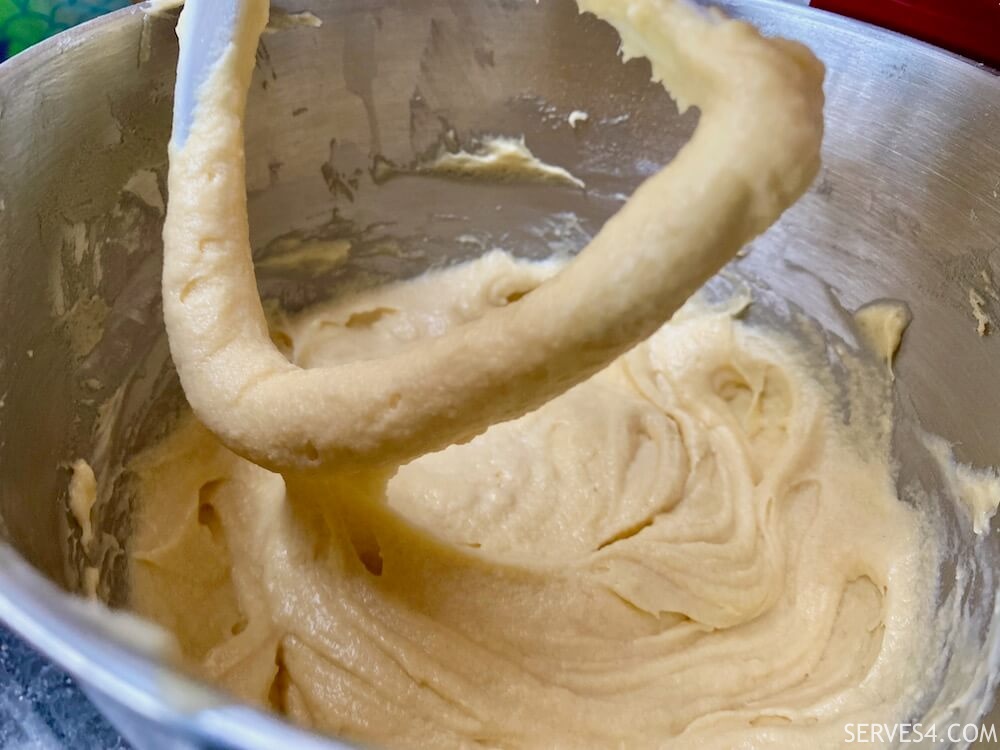
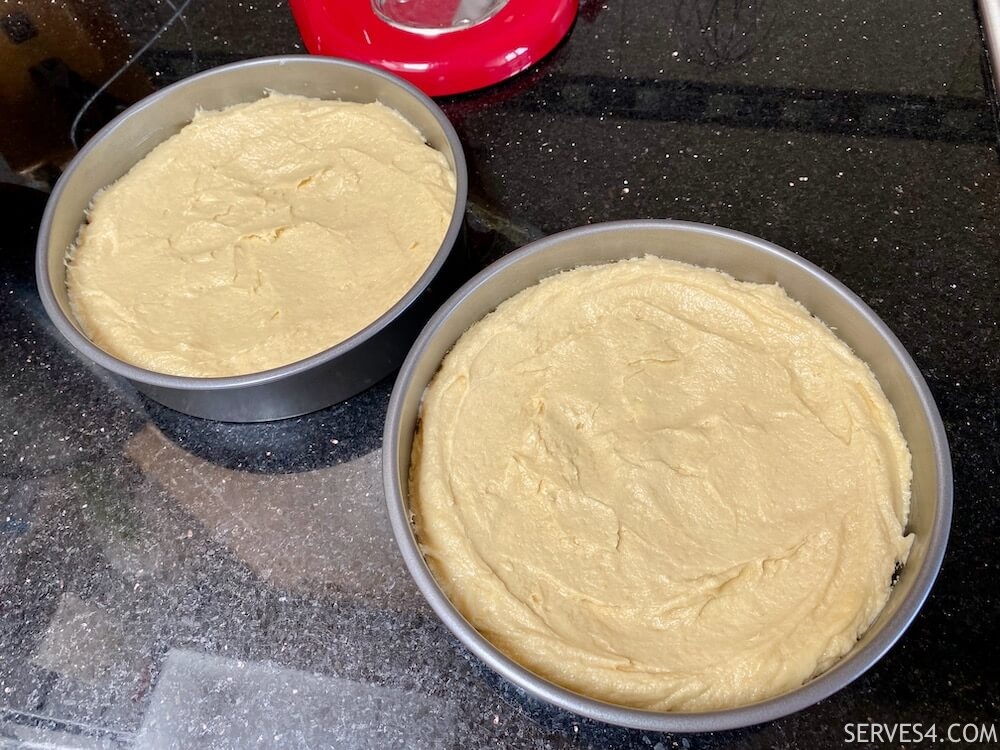
Meanwhile, make the buttercream icing:
- Cut the butter into cubes, and set it aside for about 10 minutes to soften slightly, whilst you prepare everything else.
- Separate the eggs, placing the egg whites into a large mixing bowl. Make sure the bowl is squeaky clean, as any trace of grease or dirt will prevent the egg whites from frothing properly!
- Put the caster sugar into a small saucepan, and add the water, swirling gently to combine.
- Whisk the egg whites until frothy with soft peaks and about tripled in volume.
- Heat the sugar and water over medium heat - as the sugar starts to liquidise, you can gently swirl to combine but don't stir or it will crystallise into a solid clump.
- When the sugar syrup is boiling clear, continue cooking for another two minutes. If you have a food thermometer, the temperature should be about 121C (250F).
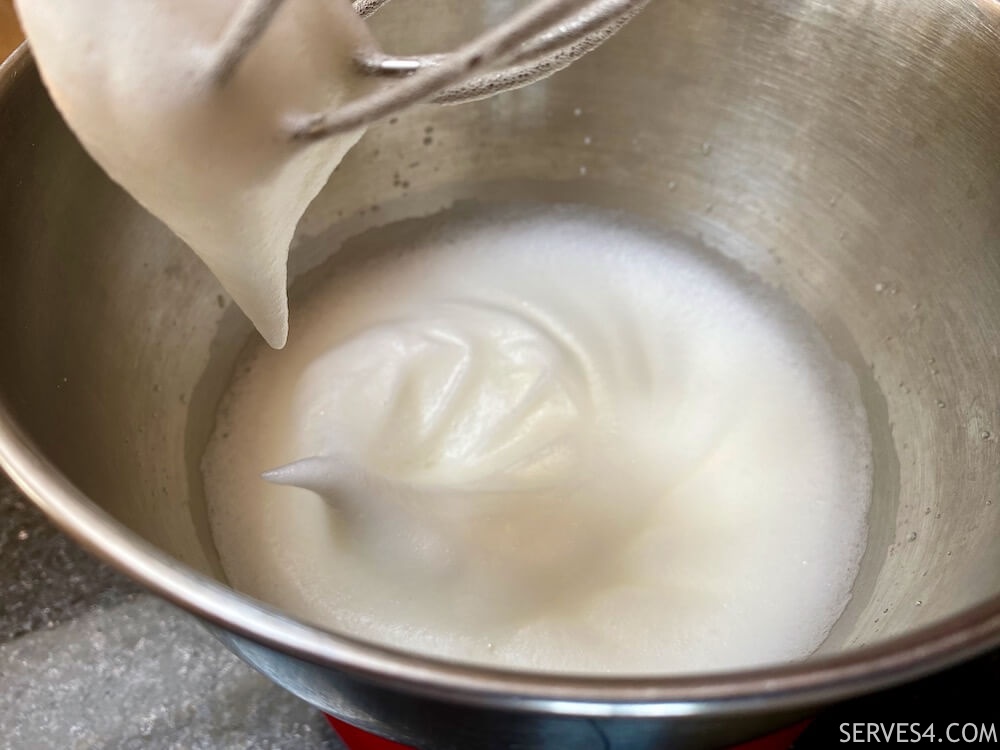
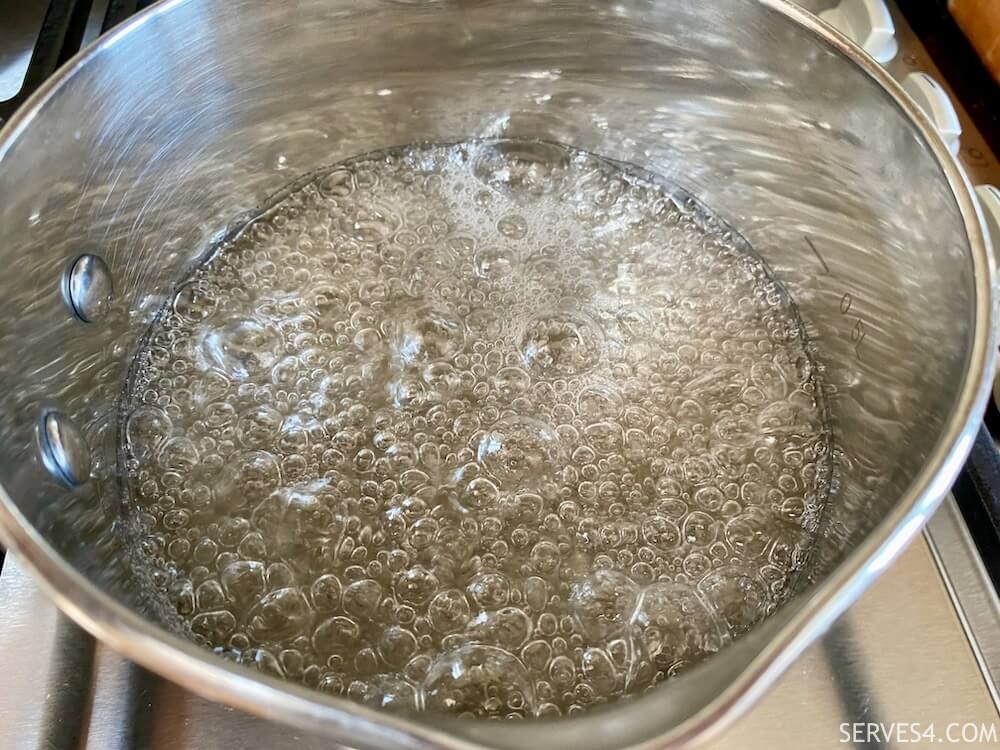
- Remove the syrup from heat, and very carefully pour it in a steady stream into the egg whites, with the mixer running at low speed.
- Increase the mixer speed, and whisk continuously until the bowl is cool to the touch and the meringue is smooth and glossy - this could take about 10 minutes or longer, depending on the speed of your mixer.
- With the mixer running continuously, add the salt and vanilla extract, if using. Then add the butter, one cube at a time, allowing each cube to be fully incorporated before adding the next.
- The mixture may start to separate, but have faith and keep that mixer going - eventually it will all come together, and you'll have beautifully light and airy Italian meringue buttercream icing.
- If you like, fill a large piping bag with your choice of tip.
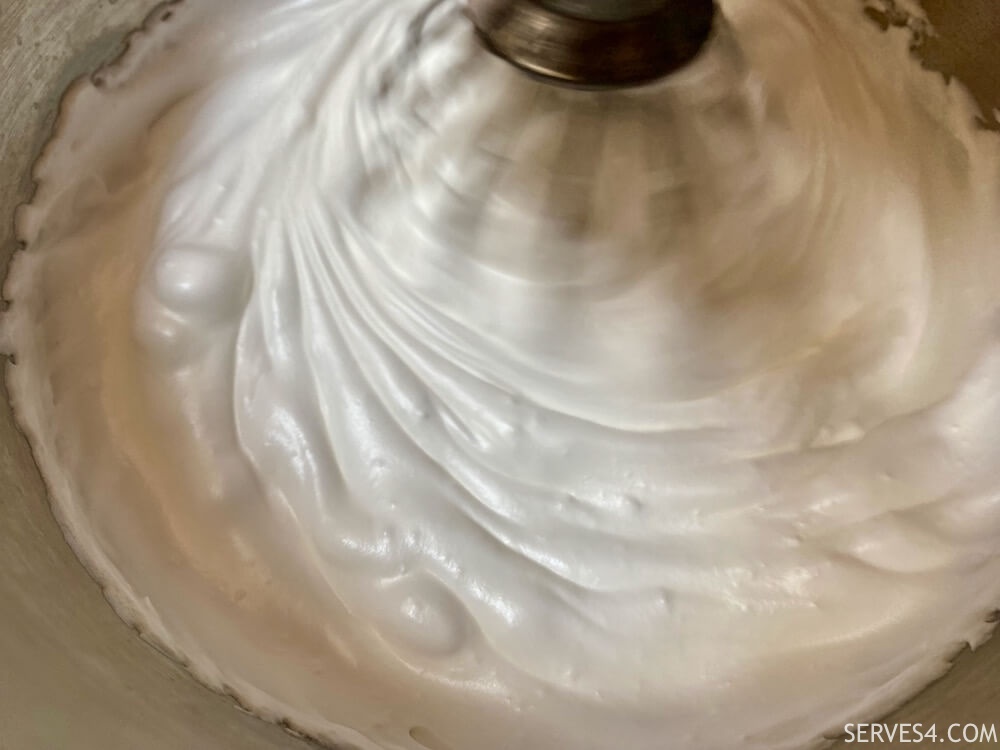
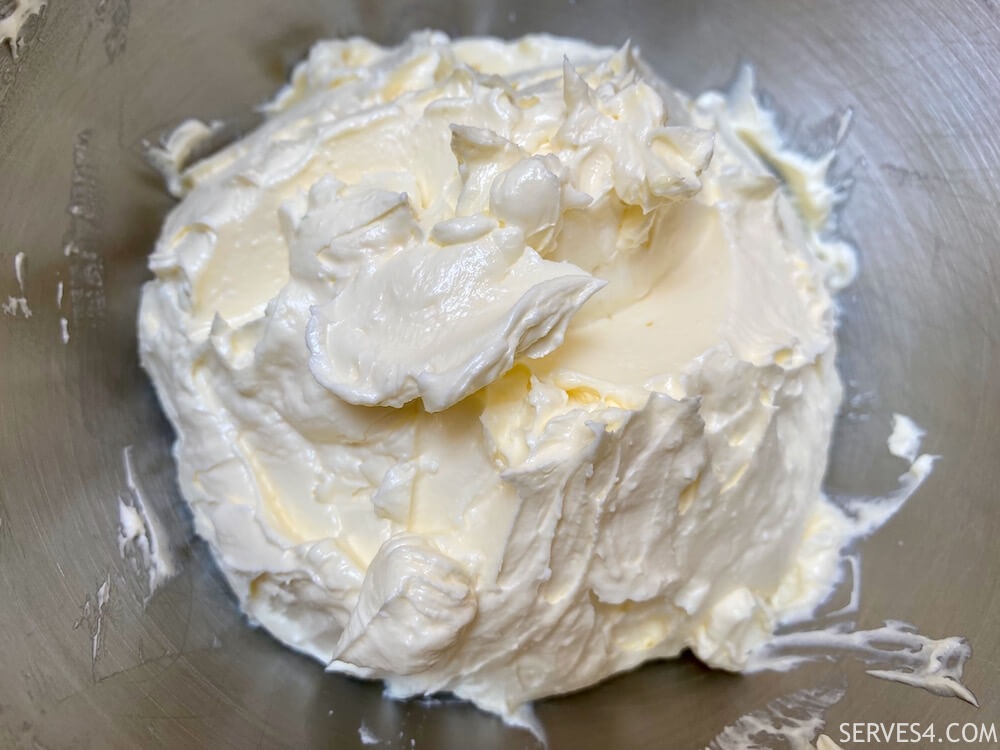
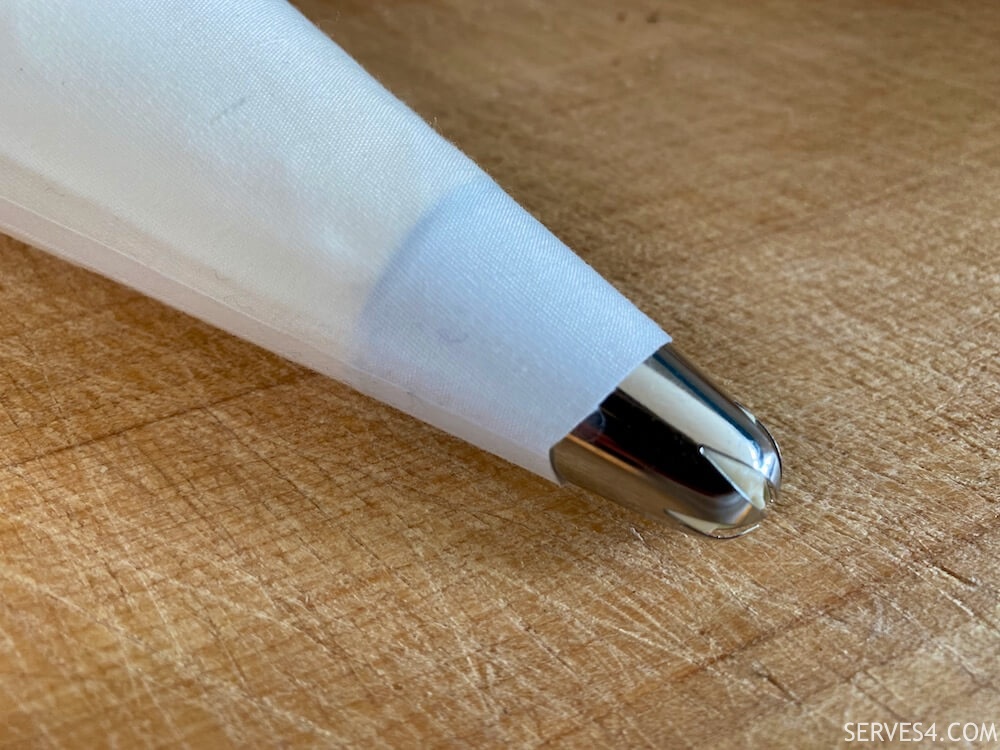
To assemble the cake:
- Place one layer on a cake board or plate, and top it with a layer of buttercream icing - you can pipe it on (as densely or sparsely as you like) or simply spread it with a knife, if piping is not your thing.
- Add a layer of jam on top of the icing, and top with the second layer of cake.
- To finish off the cake, simply dust all over with some icing sugar, or pipe some more icing on top and add fresh berries.
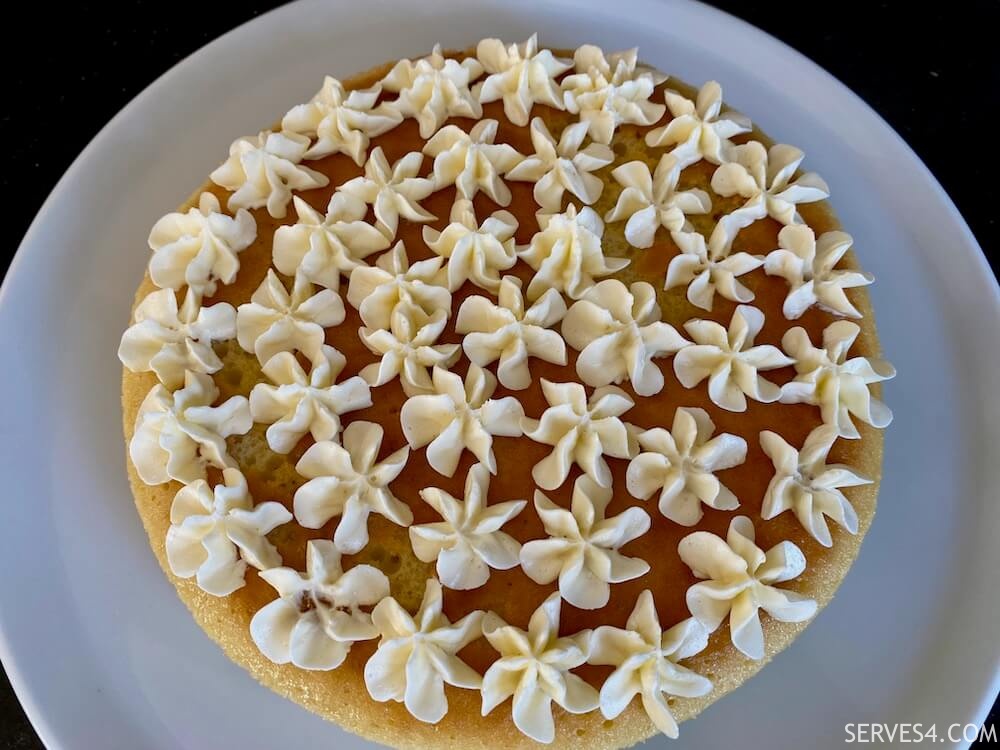
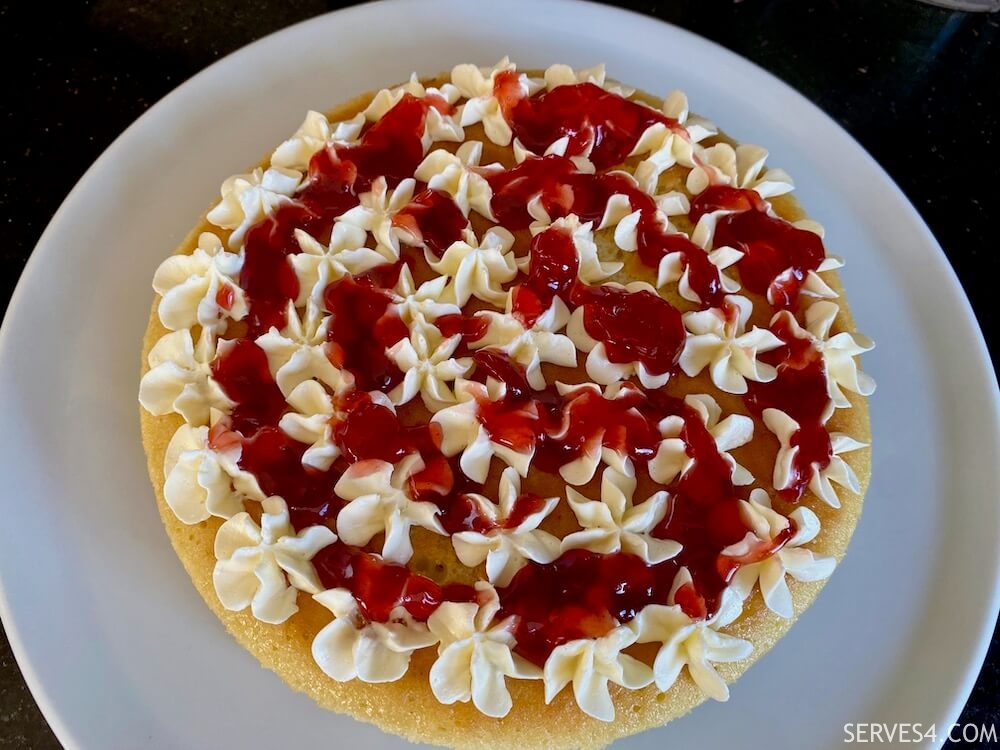
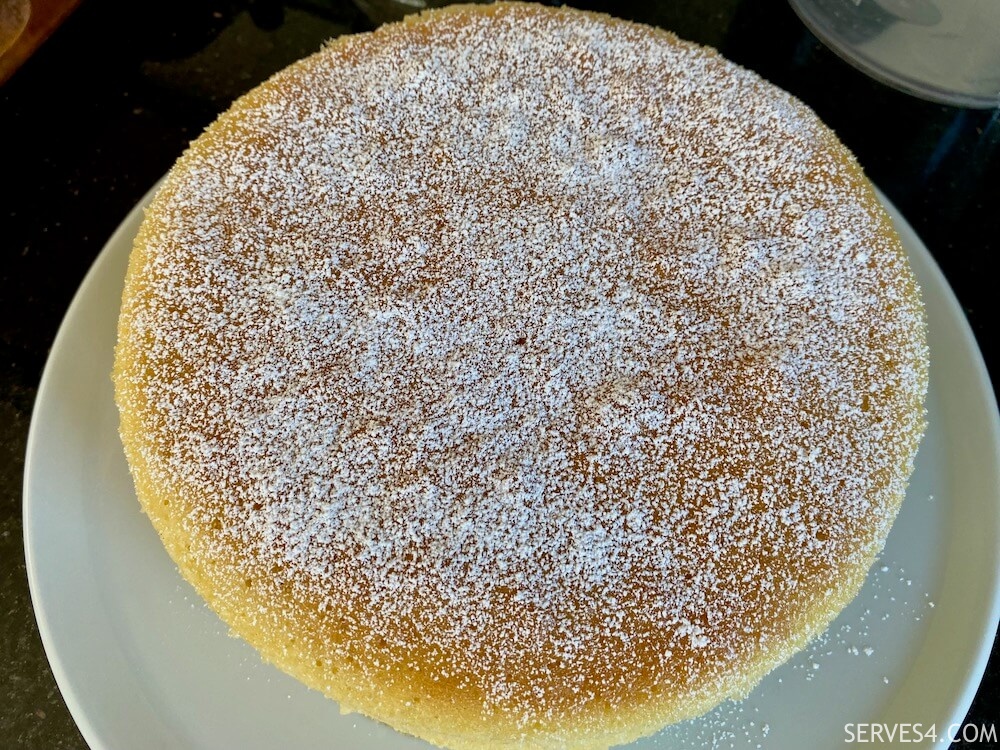
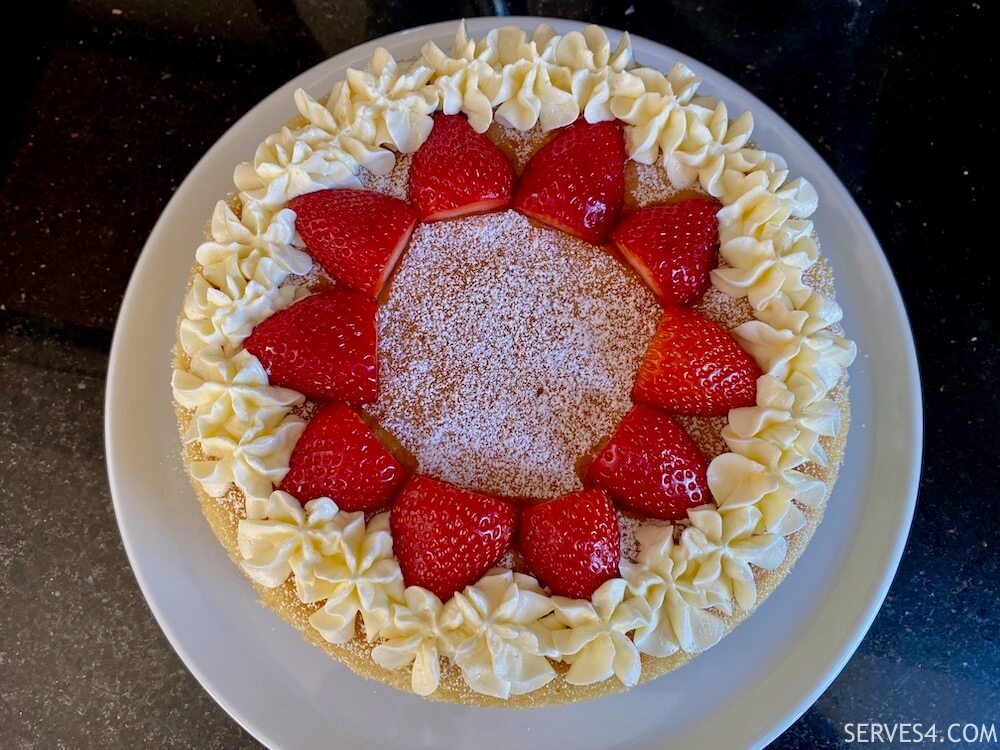
- Serve and enjoy!
Victoria Sponge Cake Recipe
By Wendy | Serves 4
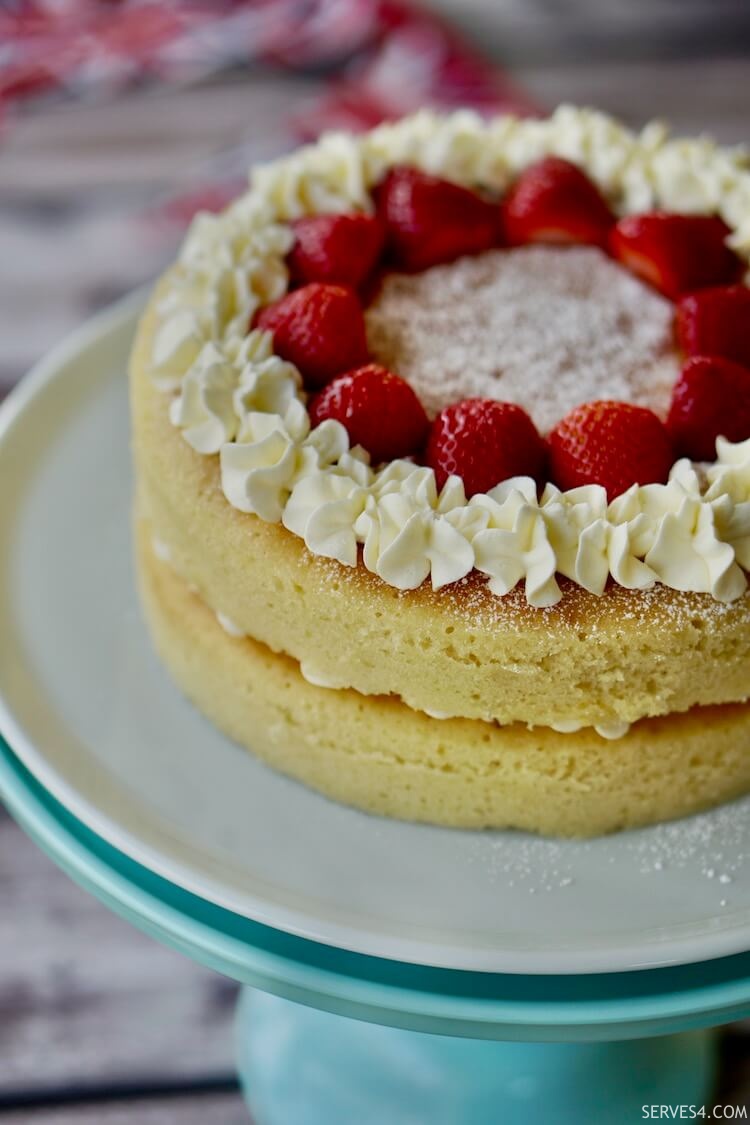
This Victoria sponge cake recipe is quick and easy to make - perfect for celebrations, garden parties, high tea or anything else!
Prep Time: 30 minutes
Cook Time: 25 minutes
Yield: 10-12 slices
Course: Pudding, Treat, Snack
Cuisine: British
Tags: British Food, Party Food
Ingredients
For the cake225g unsalted butter, room temperature
225g plain flour
4 large eggs, room temperature
200g caster sugar
2 Tbsp milk, room temperature
2 1/2 tsp baking powder
1 tsp vanilla extract
pinch of salt
For the vanilla buttercream icing (I use my trusted Italian Meringue Buttercream recipe)
250g unsalted butter, softened
3 egg whites from large eggs
150g caster sugar
30ml water
pinch of salt
splash of vanilla extract
You'll also need some jam, icing sugar and fresh berries (optional) to decorate.
Method
- Bring any cold ingredients to room temperature. Cutting the butter into small chunks will help it to warm faster.
- Prepare two 20cm (8-in) cake tins by lightly buttering them and lining the bases with a sheet of parchment.
- Put the flour, baking powder and salt to a separate bowl, stirring with a spoon to roughly combine.
- Preheat the oven to 180C (355F) / 160C Fan.
- When all the ingredients are at room temperature, cream together the butter and sugar, beating well until it's fluffy and paler in colour. Add the vanilla extract, and beat until mixed in.
- Then add one egg, beat until fully incorporated, followed by a quarter of the flour mixture, sifted, and beat again until fully incorporated.
- Repeat until all the eggs and flour mixture have been mixed into the batter, scraping down the mixing bowl in between, as necessary.
- Beat in one tablespoon of milk until fully incorporated, and repeat with the second tablespoon. The batter should be loose and drop easily off the beaters without being too runny.
- If your batter is still too thick, you can add another half tablespoon of milk, but you shouldn't really need more than that.
- Divide the batter evenly between the two cake tins, and bake immediately in the preheated oven for 25 minutes, until a skewer through the centre of each layer comes out clean.
- Remove the cakes from the oven and leave them for a few minutes until cool enough to handle. Then remove them from their tins onto a wire rack to cool completely, and peel off the parchment.
- Cut the butter into cubes, and set it aside for about 10 minutes to soften slightly, whilst you prepare everything else.
- Separate the eggs, placing the egg whites into a large mixing bowl. Make sure the bowl is squeaky clean, as any trace of grease or dirt will prevent the egg whites from frothing properly!
- Put the caster sugar into a small saucepan, and add the water, swirling gently to combine.
- Whisk the egg whites until frothy with soft peaks and about tripled in volume.
- Heat the sugar and water over medium heat - as the sugar starts to liquidise, you can gently swirl to combine but don't stir or it will crystallise into a solid clump.
- When the sugar syrup is boiling clear, continue cooking for another two minutes. If you have a food thermometer, the temperature should be about 121C (250F).
- Remove the syrup from heat, and very carefully pour it in a steady stream into the egg whites, with the mixer running at low speed.
- Increase the mixer speed, and whisk continuously until the bowl is cool to the touch and the meringue is smooth and glossy - this could take about 10 minutes or longer, depending on the speed of your mixer.
- With the mixer running continuously, add the salt and vanilla extract, if using. Then add the butter, one cube at a time, allowing each cube to be fully incorporated before adding the next.
- The mixture may start to separate, but have faith and keep that mixer going - eventually it will all come together, and you'll have beautifully light and airy Italian meringue buttercream icing.
- If you like, fill a large piping bag with your choice of tip.
- Place one layer on a cake board or plate, and top it with a layer of buttercream icing - you can pipe it on (as densely or sparsely as you like) or simply spread it with a knife, if piping is not your thing.
- Add a layer of jam on top of the icing, and top with the second layer of cake.
- To finish off the cake, simply dust all over with some icing sugar, or pipe some more icing on top and add fresh berries.
- Serve and enjoy!
To make the cake:
Meanwhile, make the buttercream icing:
To assemble the cake:
What's on your mind?
Let us know any thoughts, comments or questions by getting in touch here.
Back to the Top!

